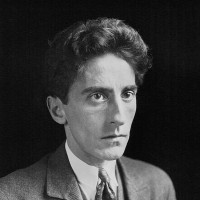CYCLE: DIRECTOR
From 19.04. To 17.05.2006.
Program of Japanese films
Jean Cocteau
05.07.1889, Maisons-Laffitte, France - 11.10.1963, Milly-la-Foret, France

Jean Cocteau grew up in a wealthy family, was educated in private schools. At the age of fifteen he is thrown out from a school and runs away to Marseilles where he lives under a false name in a neighborhood full of brothels. He is especially favorable towards modernism when writing poetry and painting as well as when making movies that are imbued with symbols. He had relationships with the famous writer Raymond Radiguet and the actor Jean Marais. He also worked with many worldly acclaimed artists (Pablo Picasso), and wrote dialogues and
screenplays for many directors like Robert Bresson, G.W. Pabst, J.- P. Melville and others. His work in the movie Beauty and the Beast, marked by his illness and physical efforts, was documented in Cocteau’s book Beauty and the Beast: Film Diary (during shooting Cocteau received an injection of penicillin every three hours).
Filmography
Le testament d'Orphée (1960)
La villa Santo-Sospir (1952)
Coriolan (1950)
Orphée (1949)
Les parents terribles (1948)
L'aigle ŕ deux tętes (1947)
La belle et la bęte (1946)
Le sang d'un počte (1930)
Jean Cocteau fait du cinčma (1925)